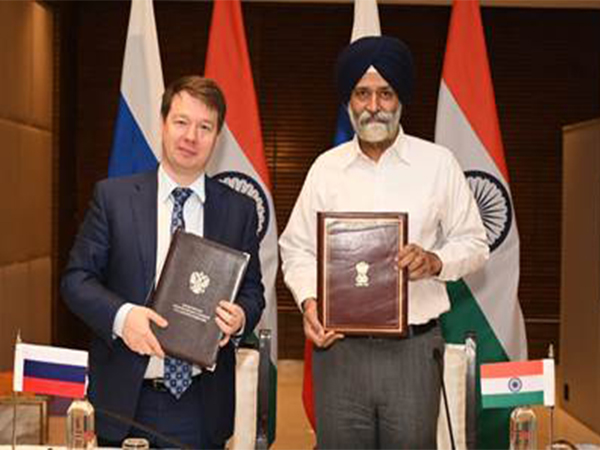Union Cabinet's decision to approve Chennai Metro Rail Phase-2 project will ease traffic, improve economic growth: PM Modi
Oct 03, 2024

Chennai (Tamil Nadu) [India], October 3 : Prime Minister Narendra Modi on Thursday extended his wishes to the people of Tamil Nadu after Union Cabinet approved the Chennai Metro Rail Project Phase-II, comprising three corridors.
In a post on X, PM Modi said, "Boosting 'Ease of Living' in a vibrant city! I congratulate the people of Chennai and Tamil Nadu on the Cabinet's approval of the Chennai Metro Rail Project Phase-II. This will help in easing traffic, improving sustainability and economic growth."
Tamil Nadu Chief Minister MK Stalin also thanked the Prime Minister for "accepting his request", which he said he raised during his last meeting with PM.
He said, "Thank you, PM Narendra Modi, for accepting our request during my last meeting with you and approving the second phase of the Chennai Metro Rail Project. This long pending demand of the people of Tamil Nadu having been addressed now, we are confident of completing the project at the earliest!"
As per an official release, after the cabinet's approval, the total length of the approved lines will be 118.9 km with 128 stations.
The project completion cost is Rs 63,246 crore and is planned to be completed by 2027. Once Phase-II is fully operational, Chennai will have a total metro rail network of 173 km.
The Phase II Project comprises three corridors, from Madhavaram to SIPCOT for a length of 45.8 Km with 50 stations, from Lighthouse to Poonamalle Bypass for a length of 26.1 Km with 30 stations, and from Madhavaram to Sholinganallur for a length of 47 Km with 48 stations.
It will extend connectivity to rapidly growing areas like Sholinganallur, which serves as a hub for the south Chennai IT corridor. By connecting Sholinganallur via ELCOT, the metro corridor will cater to the transportation needs of the burgeoning IT workforce.
Metro Rail as an efficient alternate road transport and with Phase-II as an extension to the Metro Rail network in the Chennai city is expected to alleviate traffic congestion and will be particularly impactful on heavily congested routes of the city. Reduction in road traffic can lead to smoother movement of vehicles, reduction in travel time, increasing overall road safety, etc.



















